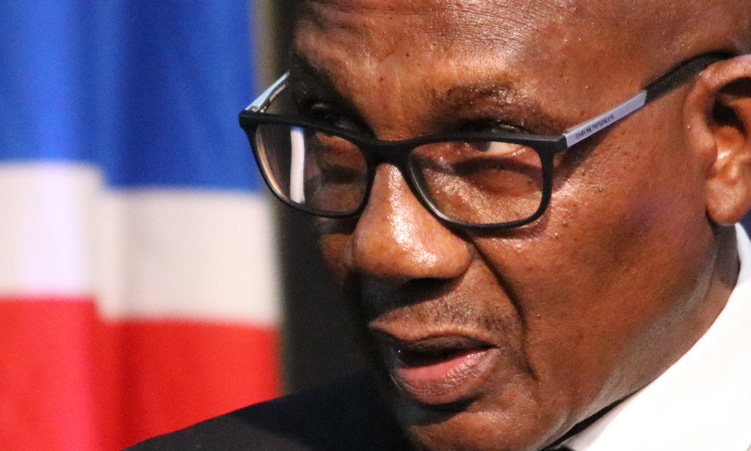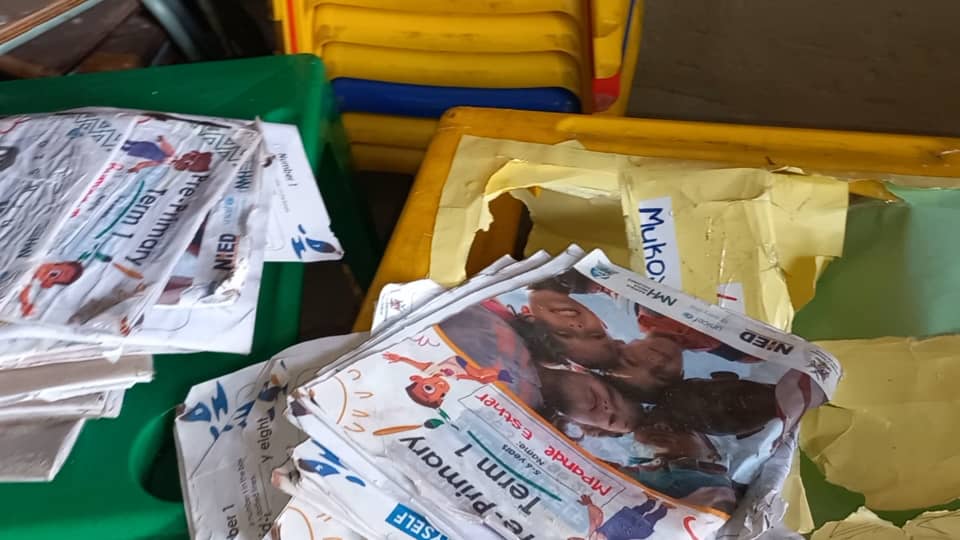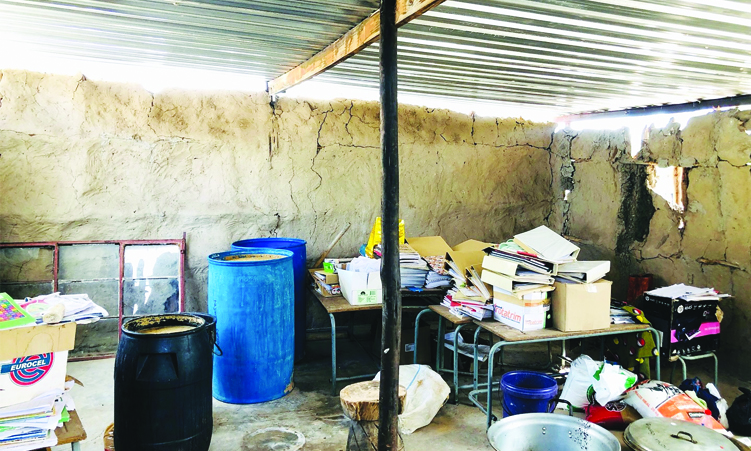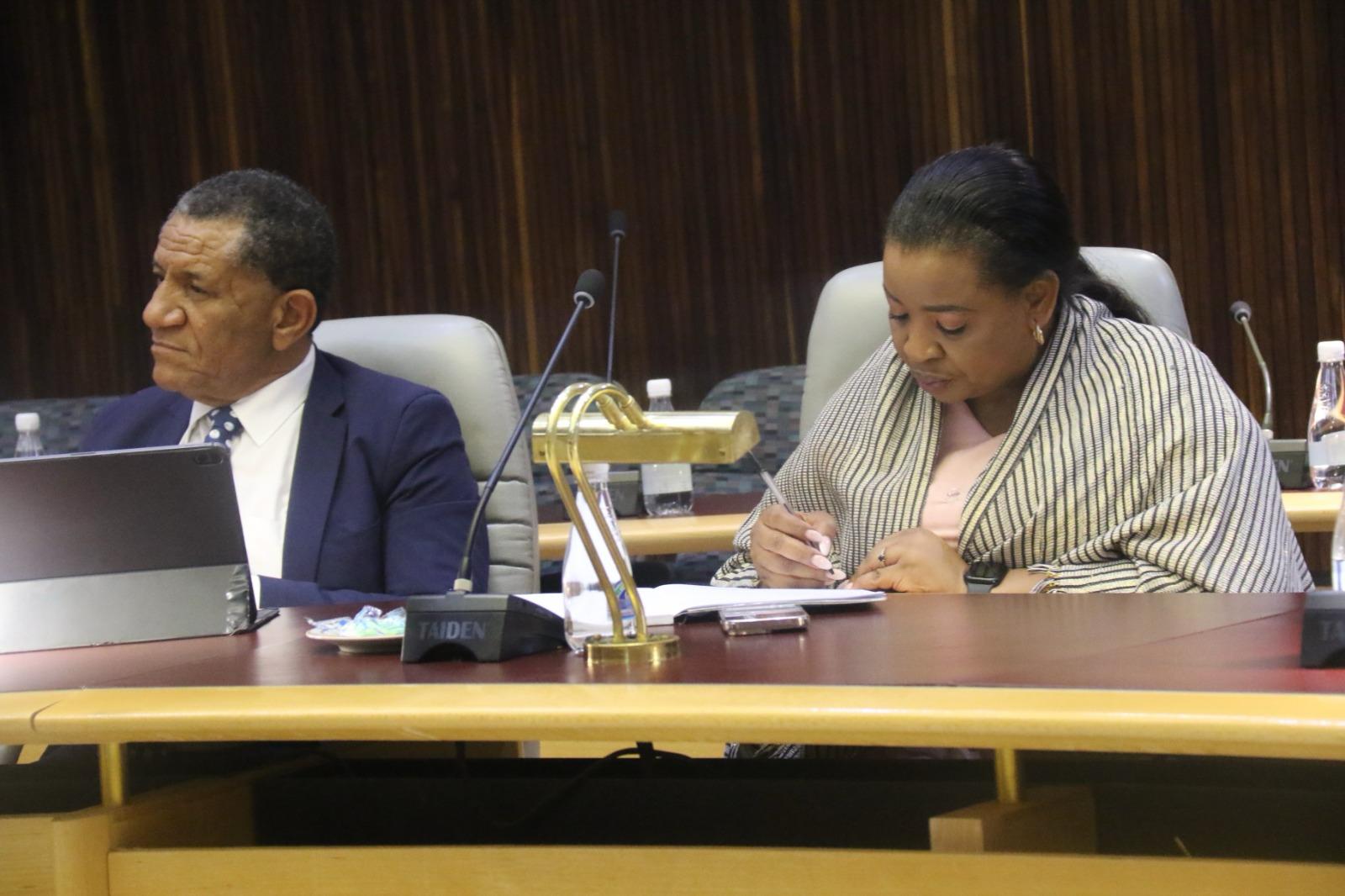Secretary to Cabinet George Simataa says SME Bank directors told the Bank of Namibia (BoN) the money stolen from the now defunct bank was “peanuts”.
Simataa says this in his memoir, ‘Timeless: My Career in the Public Service’, which was published last week.
In the book, he recounts how the public perceived him and other board members as “thieves and corrupt individuals who stole from the poor”.
Around N$247 million was stolen from the SME Bank.
Simataa says a heated exchange of words occurred between SME Bank directors and central bank officials when an urgent meeting was called to discuss the theft of N$247 million in 2016.
Simataa, as secretary to the Cabinet, was the chairperson of the board when the bank was shut down following the theft of millions, mainly by former Zimbabwean president Robert Mugabe’s personal banker, Enock Kamushinda.
According to Simataa, he was at the village when he received a call for an urgent meeting between SME Bank directors and the BoN’s leadership.
During this meeting on 24 November 2016, Simataa says “tempers flared, as parties could not agree”.
“Some directors were angry that they were being accused of theft by the BoN,” Simataa writes.
He says the directors told BoN officials they had more money than what was reportedly stolen from the SME Bank, so it would not be necessary for them to steal “change” (peanuts).
“Tempers flared,” Simataa says.
He recounts that the heated exchange took him aback, and that this was the first time he sensed something was wrong at the bank.
Simataa says he had been chairperson for a year and only sat in about four meetings before the house of cards came crashing down.
In 2016, Simataa told The Namibian the N$5 million loan application for his farm was conditionally approved. However, the loan was never paid out to him because the bank was shut down.
ECONOMIC CRIME
The SME Bank scandal has been unfolding in the courts for over eight years. Seven months ago, the Supreme Court described the theft at the bank as “economic crime”.
“Economic crime of this scale, within the context of the Namibian economy, justifies an appropriately serious response,” appeal judge Dave Smuts notes in the court’s judgement.
In his book, Simataa says working as the SME Bank’s chairperson brought him unbearable hardship.
He says he became aware that the bank had made N$230 million in South Africa, before his appointment.
Simataa recalls that the closure of the bank marked only the beginning of a legal nightmare in which he was slapped with a summons from the bank’s liquidators.
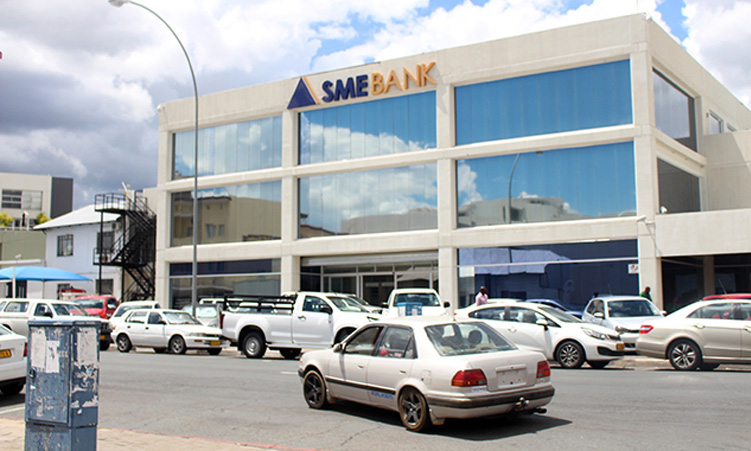
The summons claimed he and other directors failed to act honestly and in good faith for the benefit of the bank and its clients.
They were further sued to repay board fees the liquidators claimed they were not entitled to.
“I was being asked to pay back an amount of N$203 570. The liquidators also wanted us to pay back the legal costs of the Commission of Inquiry and any debt or liabilities of the SME Bank.”
Simataa says he and other board directors faced public attacks.
“Users of social media insulted us as they wished. We also received our fair share of insults from trade unions. We were labelled as thieves and corrupt individuals who stole from the poor. We received all sorts of insults and negative comments, with me and Frans Kapofi receiving the most, since we held public office.”
“I was secretary to the Cabinet, while Kapofi was a Cabinet minister. While I was sad that close to 200 Namibians lost their jobs and livelihoods as a result of the closure of the SME Bank during my tenure of office as chairman, I was not bothered by the insults and accusations against me because I knew that I [had] never stolen money from the SME Bank,” he says.
Simataa was one of the senior government figures who fought the BoN over the SME Bank’s closure.
The central bank had picked up several red flags, among them being a lack of contingent funding, a failure by the bank to honour withdrawals of major clients, a lack of an asset and liability committee oversight, the absence of investment policy procedures and investments that were made above the limit of the chief executive officer.
“I was comfortable with the BoN’s inquiry and wanted answers. I encouraged openness and even pleaded for more time to rectify the BoN’s findings and concerns. Alas, despite all this, I received a notice of issuance of the order in terms of the Banking Institutions Act 1998, citing that the BoN was not satisfied with the representations made and required evidence of investments before 31 January 2017,” Simataa writes.
He says he understood the central bank’s position, as well as the arguments being advanced by the Zimbabwean directors.
He rallied other directors to work with management to fix some of the red flags raised, especially the absence of the investment policy and procedures.
“Lo and behold, I was removed as a non-executive chairperson of the board of directors of the SME Bank by the governor of the BoN on 27 February 2017. The reasons for my removal, together with other board members, were cited as allegedly conducting the business of the SME Bank in contravention of the Banking Institutions Act 1998, and in a manner detrimental to its customers or the general public.”
Three years ago, liquidators said six former SME Bank board directors were reckless and allowed Kamushinda free rein to steal N$200 million from the bank.
“They [the directors] failed generally to act honestly and in good faith, or in the best interest, or for the benefit of [the] SME Bank and its depositors,” the liquidators said.
The Namibian reported last year that Simataa repaid N$1 million to SME Bank’s liquidators.
His memoir was auctioned at the Namibian Institute of Public Administration and Management in Windhoek last week during the book’s launch, which was also attended by president Nangolo Mbumba.
The book’s foreword was written by former president Hage Geingob, the preface was done by former president Hifikepunye Pohamba, while the book review and motivation was written by prime minister Saara Kuugongelwa-Amadhila and former Cabinet minister Helmut Angula.
Stay informed with The Namibian – your source for credible journalism. Get in-depth reporting and opinions for
only N$85 a month. Invest in journalism, invest in democracy –
Subscribe Now!




